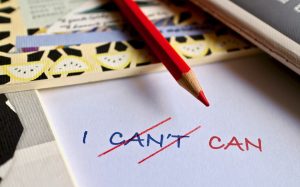Have you reached the stage of ultimate self-fulfillment? Or do you feel that you need to further invest in your personal development in order to unlock your potential? Many of us feel that there is something more we can achieve but simply don’t know where to start. If you’re like most people, you might feel stuck between your current achievements and your true potential. Even if you’re making progress toward your goals, you may feel exhausted, burnt out, or just don’t know what the next step is. This is where understanding your unique strengths can make a significant difference.
By taking the HIGH5 strengths test, you can gain valuable insights into your natural talents and learn how to leverage them effectively. This self-awareness can help you navigate your personal development journey more efficiently, reducing burnout and maximizing your potential. Investing in personal development is a never-ending process. The more you grow, the more you realize that you could go a bit further and expand your potential. This is what personal development is all about, i.e., how to maximize your potential, be authentic, and live a fulfilling life.
What is personal development?
Personal development is a lifelong journey of self-improvement that encompasses various aspects of life, including skills, knowledge, and behaviors. It involves setting personal goals, working towards them, and continuously assessing and enhancing your abilities (1). A crucial first step in this process is understanding your innate strengths. The HIGH5 strengths test offers a scientifically backed method to identify your top five strengths, providing a solid foundation for your personal development efforts. By aligning your goals with your natural talents, you can create a more effective and fulfilling path to self-improvement [1].
Personal development can encompass emotional well-being, physical health, career progression, interpersonal relationships, and spiritual growth.
Pro Tip From HIGH5
When embarking on your personal development journey, start by focusing on your strengths rather than trying to fix perceived weaknesses. Use the results from your HIGH5 strengths test to guide your goal-setting process. For example, if ‘Strategist’ is one of your top strengths, consider how you can apply this talent to various aspects of your personal growth plan.
Maslow and self-actualization
While the core idea of personal development is to help individuals live a more fulfilling life, there are multiple concepts that surround the process. Yet, the most dominant is the one depicted by Abraham Maslow in his well-known pyramid or hierarchy of needs. In his self-actualization theory, Maslow claims that seven hierarchical levels lead to achieving the state of ultimate self-actualization [2]. To reach the highest level of self-actualization, Maslov claims that a person needs to be fully aware of his/her feelings and in touch with oneself to live a meaningful life. Anyone is able to reach the highest level of “transcendence” which refers to finding meaning and experiences beyond their personal concerns and they are focused on understanding, belonging and feeling aligned with their existence). In line with this, he explains his so-called Hierarchy (Pyramid) of Needs [2].
Only when one level of needs is adequately met, the person can aspire to achieve a higher level. The base level of the pyramid includes all the necessary physiological needs that every human being has. These include the needs for food and drinks, sleep, protection, and sex, i.e., a satisfaction of basic human drives for survival. The second level includes the needs that ensure feeling safe and secure in every aspect. The most dominant within this level is the need to be healthy and financially stable, so this includes things like housing, warmth, etc [2]. When those needs are met, a person can strive to reach the needs of the third level which relates to “love and belongingness”. This stage involves fulfilling the need to be loved and having a family, belonging to a group, exchange of affection, acceptance, and respect. The fourth stage is about achieving “esteem” which includes meeting the need for social recognition, self-respect, competency, and respect for and from others [2].
The fifth level includes cognitive needs, i.e., the thirst for knowledge, understanding, and meaning. These help people anticipate and predict upcoming events and lead to better organization. The next level includes the aesthetic needs for beauty, order, design, creativity, and art. Next is the need for self-actualization, i.e., reaching the potential of becoming everything the person has been capable of becoming and finally, at the top of the pyramid is transcendence [2]. Once we understand how people progress through these stages we can use this information to help identify where we are at in our journey of self-development, authenticity and fulfillment. This in turn helps us identify gaps or areas to further focus on and helps shape our personal development plans.
What are the 5 areas of personal development?
Physical development
Taking care of your body through regular exercise, a healthy diet, adequate sleep, and routine medical check-ups to ensure overall physical well-being.
Emotional development
Another key area of personal development focuses on understanding and managing one’s emotions, developing empathy, building resilience, and improving emotional intelligence to improve relationships and self-awareness.
Mental development
This entails enhancing cognitive abilities through continuous learning, critical thinking, problem-solving, and engaging in activities that stimulate the mind.
Spiritual development
Pertains to exploring and nurturing your inner self, aligning with your values and beliefs, and finding a sense of purpose and meaning in life.
Social development
Involves improving communication skills, building healthy relationships, developing social networks, and participating in community activities to enhance social interactions and support systems.
How to create your personal development plan?
- Define your vision and goals: Begin by envisioning your future self and where you want to be. However, before setting specific goals, it’s crucial to understand your unique strengths. The HIGH5 strengths test can provide valuable insights into your natural talents, helping you align your goals with your innate abilities. Once you have this self-awareness, set specific, measurable, achievable, relevant, and time-bound (SMART) goals that not only align with your vision but also leverage your core strengths [3]. This strengths-based approach to goal-setting can significantly increase your chances of success and satisfaction in your personal development journey.
- Develop a strategy: Create a step-by-step plan to achieve your goals. Break down each goal into smaller, manageable tasks and set deadlines for each.
- Acquire necessary skills and knowledge: Determine what skills or knowledge you need to reach your goals. Seek courses, workshops, books, or mentors to help you gain these skills.
- Implement and take action: Start working on your tasks consistently. Stay committed to your plan and make steady progress towards your goals.
- Monitor and track progress: Keep a journal or use a tracking tool to record your achievements and setbacks. Regularly review your progress to stay motivated and make adjustments as needed.
- Review and adjust your plan: Periodically revisit your goals and strategies. Adjust them based on your progress, new insights, or changing circumstances to stay on track toward your personal development.
Pro Tip From HIGH5
When creating your personal development plan, use your HIGH5 strengths test results as a guide. For each goal you set, consider how you can apply one or more of your top strengths to achieve it. This approach ensures that your plan is not only ambitious but also authentically aligned with who you are, making it more sustainable and enjoyable to pursue.
Examples of personal development plans
Here are several examples of personal development plans. Each person’s unique needs, experience and sense of self will help drive or dictate what kind of plan will be relevant to them, but here are some suggestions to help see how the theories and information shared here can apply to creating a practical and realistic personal development plan.
- 1. Career advancement plan
- Goal: Become a team leader within two years.
- Current Situation: Junior software developer with good technical skills but limited leadership experience.
- Strategy:
- Strengths Assessment: Take the HIGH5 strengths test to identify natural leadership qualities and areas for development.
- Skill Acquisition: Based on HIGH5 results, enroll in leadership and management courses that complement your strengths.
- Mentorship: Find a mentor within the company who can provide guidance, focusing on leveraging your identified strengths in leadership roles.
- Experience: Volunteer to lead small projects or team activities that align with your top strengths, as identified by HIGH5.
- Review: Meet quarterly with the mentor to review progress, discuss how you’re applying your strengths, and adjust the plan accordingly.
- Health and wellness plan
- Goal: Lose 20 pounds and improve overall fitness in six months.
- Current Situation: Sedentary lifestyle with poor eating habits.
- Strategy:
- Diet: Consult a nutritionist and create a balanced meal plan.
- Exercise: Join a gym and commit to working out three times a week.
- Habits: Track daily food intake and exercise routine in a journal.
- Review: Monthly check-ins with a fitness trainer to assess progress and make necessary adjustments.
- Personal growth plan
- Goal: Improve emotional intelligence and build stronger relationships within a year.
- Current Situation: Difficulty in managing emotions and understanding others’ perspectives. This is impacting on the quality and longevity of existing relationships.
- Strategy:
- Education: Read books and take courses on emotional intelligence and effective communication. Or see a counselor/psychologist to learn emotional regulation and communication strategies.
- Practice: Engage in active listening exercises and strategies to help manage emotions, like; mindfulness meditation, calm breathing, and strategies to effectively share your needs and ideas with others.
- Feedback: Seek feedback from friends and family on interpersonal interactions.
- Review: Reflect weekly on personal interactions and emotional responses, adjusting strategies as needed.
20 examples of personal development goals
- Embrace empathy – In our self-focused and individual society, empathy is not a common topic of discussion. However, it might be the key to your success. The reason? Putting yourself in other people’s shoes and trying to understand others can help you become more insightful and it improves relationships [4]. Plus, a wide range of perspectives offers a wide range of solutions in case of a problem.
- Confidence – Numerous studies have shown that a person’s confidence may play an even more important role than his/her intelligence when it comes to achieving success [5]. Of course, there are many factors that determine it, such as persistence, goal orientation, and flexibility. Boosting your confidence will increase your chances of success, so don’t neglect it.
- Accept and deal with your fear – We all have fears. Period. But how we face and deal with them is what makes a difference. If you don’t get exposed to your fear, you won’t be able to eliminate it and you will remain stagnant [6]. So, step by step, approach everything you have never dared to do and get closer to achieving self-actualization and fulfillment.
- Listen actively – When we engage in active listening we not only show the people around us that we care about them, their needs and ideas (which can improve relationships) but we can also gain new perspectives when we focus on listening not just sharing.
- Get along with your friends – Making friends is always better than making enemies. Instead of confronting others, try allying with them. Humans are social beings, and we are meant to live and relate with others.
- Stop procrastinating – You must have heard the saying: Whatever you can do now, just do it!”. Now is always a better option than later, so don’t postpone and let things pile up.
- Improve your body language – On a subconscious level, your body speaks a lot, so try to synchronize it with the verbal words you are communicating. When your verbal and nonverbal communication is matched, people can help improve how you express and get your needs met, and build trust with others.
- Wake up early – Numerous research has shown that early risers have more fulfilling lives [7]. Waking up early can help you organize your daily schedule better, reduce stress, and help you stay productive during the day. Mind you, it’s important to go to bed early too!
- Let go of the past – The past belongs to the days long gone, and except for lessons learned, nothing else should be dragged into your present life. Past regrets and mistakes can prevent you from achieving success, so use your learnings wisely to create a better future.
- Conflict resolution – Conflict is unavoidable, but the way you behave during a conflict can impact your well-being and interaction with other people. One of the most crucial aspects of personal development is staying calm and reserved when conflicts pop up. Instead of getting angry, try to think outside of the box and find a new opportunity where everyone else sees a problem.
- Read more frequently– The more you read, the more knowledgeable you become, and that will make you more competitive (occupationally), discerning, and productive. Plus, science indicates that people who read might be happier [8].
- Improve your relationships and social life – Sharing and exchanging ideas with other people can trigger positive change as you embrace new perspectives, so don’t push aside your social life. It doesn’t have to be many people. A friend or two can be just enough for introverts as well.
- Be more adaptive – Having firm ideas and opinions is fine, but there is a thin line between rigidity and self-assurance. While nurturing your standpoints, it won’t hurt your dignity to show a bit of flexibility and adaptability to those who matter to you the most.
- Be better at leading – You don’t have to become a CEO to be a leader. You can start small, but it’s the act of leadership rather than the size of the team that’s important. Being a leader enables you to inspire and guide others toward achieving common goals and outcomes, it drives innovation, builds confidence, and helps create a positive, productive environment for the people around you.
- Integrity – When you have integrity it helps build trust and credibility, which forms the foundation for strong relationships. Having integrity means that your choices and actions are guided by ethical principles and honesty which fosters respect and accountability.
- Problem-solving – Instead of focusing on your weaknesses or the challenges you are facing, try to focus on your strengths and use them to solve problems or think about what has worked in the past, or indeed think outside of the box for a solution.
- Become resilient – Resilience is the ability to bounce back from an adverse situation and recover quickly. This usually happens when the individual has the ability to manage their worries, and uncomfortable feelings or to persist despite challenges in order to face roadblocks or speed bumps that occur in their life.
- Increase your willpower – Having strong willpower can impact your friendships, relationships, career success, and health. Willpower helps you stay focused on your long-term goals while simultaneously resisting short-term temptations. It improves your self-discipline and enhances your ability to make intentional choices that are more closely aligned with your values.
- Work on a growth mindset – Some of the preconditions for success and progress include having a mindset that is focused on growth and development. It allows you to embrace challenges, learn from past failures, and see challenges as opportunities for growth.
- Deal with stress more efficiently – A little stress can have a motivating effect. However, too much stress can inhibit your productivity, health and well-being. This can hinder your opportunities for growth, progress, and personal development, so it is of utmost importance to find ways to learn how to manage and reduce the impacts of stress.
How do you use your DPD?
Using your personal development plan effectively involves a series of thoughtful and deliberate steps. Start by clearly understanding your goals and the specific actions you need to take to achieve them. Begin by integrating these actions into your daily routine. Consistency is key, so make a habit of dedicating time each day to work on your development tasks. Keep track of your progress regularly. This can be done by maintaining a journal or using a digital tool where you can note down your achievements, challenges, and any adjustments needed. Reflect on your progress at the end of each week or month to see how far you’ve come and to identify any areas where you may need to put in more effort or change your approach.
It’s also important to stay flexible. Life can be unpredictable, and your goals or circumstances might change. Be open to revising your plan as needed. Seek feedback from trusted mentors, friends, or colleagues to gain different perspectives and insights that can help you improve. Celebrate your successes, no matter how small, to stay motivated and maintain momentum. Lastly, remember that personal development is a continuous journey. As you achieve your goals, set new ones to keep growing and evolving. By using your personal development plan in this structured yet adaptable manner, you’ll be better equipped to reach your full potential and lead a fulfilling life.
How to stick to your PDP?
Sticking to your Personal Development Plan (PDP) requires commitment, consistency, and a few strategic approaches. First, set realistic and attainable goals to avoid becoming overwhelmed. Break down your larger objectives into smaller, manageable tasks that you can work on daily or weekly. This makes the process less daunting and helps maintain steady progress. Create a schedule and incorporate your development activities into your daily routine. Treat these activities with the same importance as your other commitments. Using tools like calendars, planners, or digital reminders can help you stay organized and keep track of your tasks.
Regularly review and update your plan. Assess your progress, celebrate your achievements, and identify any obstacles that may be hindering your advancement. Adjust your plan as needed to stay aligned with your evolving goals and circumstances. Accountability is another crucial factor. Share your goals with a mentor, friend, or family member who can offer support and encouragement. Regular check-ins with this person can provide motivation and help you stay on track. Keep yourself motivated by visualizing the end result and the benefits of achieving your goals. Remind yourself why you started this journey and the positive impact it will have on your life. By maintaining a positive mindset and staying dedicated, you can successfully stick to your PDP and continue your path to personal growth.
Three aspects of personal development
Personal development encompasses many areas of your life, and it is not just your career or your well-being. In order to become a better version of yourself, you need to explore, learn, practice, repeat, and revise, as well as maintaining discipline and motivation in order to see a sustained change. So, three key areas are affected by personal development:
Spiritual
Not everyone believes in a higher power, but for those who do spirituality can support personal development by imparting a sense of purpose, and inner peace. This kind of assurance can help guide you through life’s ups and downs. Spirituality also encourages self-awareness, reflection, and connection with something greater than oneself, which can help people’s resilience and well-being.
Physical
If you strive to transform yourself, don’t ignore your body. We have all heard the saying ‘Healthy body means a healthy mind”, and we are all aware that we need to feel well cognitively and emotionally. So, while you’re on your journey of unraveling your potential, pay proper attention to your body and well-being. If you are not eating well. Moving your body enough or getting good quality sleep, now is the perfect time to take action. Do what makes you feel energized, change your diet, get in touch with nature, and start pampering yourself. Your body should reflect the same care you’ve been giving to your mind.
Mental
We talked about your soul and your body, but your mind needs equal attention as well.
Whether it be learning something new, learning how to manage your emotions, seeking therapy or other support, or keeping your mind sharp with puzzles that stretch your brain, it’s important to address your mental well-being.
How do you improve your personal development skills?
Developing your skills is a matter of consistent effort. It could be learning through someone else’s example, reading books, or taking up a new hobby or profession. Whatever enhances or polishes your skills can contribute to your personal development. The following advice can help you in the process:
- Face your fears to overcome them – One of the greatest life challenges is to view your fears as opportunities for growth. This means confronting what scares you head-on. However, the key to successfully overcoming fears lies in approaching them from a position of strength. By taking the HIGH5 strengths test, you can identify your core strengths and use them as powerful tools in facing your fears. For instance, if your test reveals ‘Resilience’ as a top strength, you can lean on this quality when tackling challenging situations. Whether it’s taking driving classes, public speaking workshops, or learning something difficult, approach these experiences with the confidence that comes from knowing that you can tackle challenges and can bounce back when you feel stretched.
- Read and learn – It is never too late to learn a new skill, a new language, or a new hobby. If you have always wanted to do something but have never had the chance, now is the time to start it. Read books that inspire, motivate, and encourage.
- Connect with other people – Connecting with others can offer new perspectives, new ideas, and alternative solutions. When you join a network of people with mutual interests, you can expand your knowledge on the topic, attend events and conferences, and increase your chances of getting a better job, but you can also create new networks and friendships.
- Observe others – You don’t have to imitate other people, but if you are at the initial stage of your transformational process, try to find out how others cope with problems and thrive in difficult situations. If you have a role model, analyze the situations he/she has been through and see what has brought them success.
- Write your ideas down – We mentioned above that keeping a journal can help you track your progress. The same refers to creative ideas. However, if you keep track of everything that comes to your mind, you can analyze them later and create a solid base for starting something new.
Pro Tip From HIGH5
When facing your fears, refer to your HIGH5 strengths test results. Choose one of your top strengths and consciously apply it to the situation. For example, if ‘Optimism’ is a key strength, focus on the positive outcomes and growth opportunities that overcoming your fear will bring. This strengths-based approach can make the process of facing fears less daunting and more empowering.
Recommended books on personal development
The 4-Hour Workweek, by Tim Ferriss
If you are just starting to explore the personal development field, Tim Ferriss’s book ‘The 4-hour Week’ is a good starting point. In essence, he shares ideas on how to earn more while working less and how to get out of the corporate rat race. The book is segmented into four parts, forming the acronym DEAL which instructs you how to make the most important lifestyle changes. The letters stand for:
- D – Define how your ideal life would look like
- E – Eliminate everything that doesn’t fit in the idea of a perfect life
- A– Automate the repetitive processes
- L – Liberate yourself from obstacles and create a new life
How to Be Power Connector, Judy Robinett
The concept of personal development strongly emphasizes the importance of creating and maintaining relationships with other people. So if you find it hard to create new friendships, keep the existing ones and introduce new friends to your old ones, then How to Be a Power Connector is the right book for you.
The author Judy Robinett explains how to create a network of meaningful relationships and add value to them. She introduces a 5+50+100 formula that elaborates on how to create a list of your top 155 people. It is a strategy that increases your empathy, generosity, and altruism that will reward you with increased confidence, finding your life’s purpose and self-respect.
A Tree Grows in Brooklyn, by Betty Smith
If you seek encouragement to go through tough times, this semi-autobiographical book can help you relate to the character’s hardships, persistence, and success. Unlike the previous two books, this is not a guidebook with step-by-step instructions on how to move on, but the story itself, and the real-life circumstances are thoughtful enough and offer valuable life lessons.
Failing Forward, by John C. Maxwell
If you have tried and failed over and over again, you might have reached a stage that is hard to move on to. Even worse if you think of yourself as a hopeless case. Well, regardless of whether you find yourself in that scenario or not, Falling Forward is one of the best personal development books that tackles the issue of failure. The author encourages readers to move on even if they have failed multiple times. He explains that the difference between those who fail and those who succeed lies between ‘a few more attempts’ and that giving up is not an option. Plus, you’ll find motivational anecdotes from successful people who failed before as an impetus to move on.
How To Win Friends and Influence People, by Dale Carnegie
The title of the book is self-revealing. So, if you struggle to make friends or you can’t overcome the sound of your own self-doubt, this book can help you tackle those issues. This is a self-help book to increase your communication skills, self-confidence, and persuasive skills. The style is simple and easy to read, intended to lay down the foundations of how you interact with people.
Principles, by Ray Dalio
A prominent investor pours his insights into a set of valuable lessons on how to succeed in whatever you do. It is a book that contains everything he encountered while creating the system that made him reach the top. The book contains useful ideas on how to survive in an organization and learn from others. It tells you whose advice is worth listening to and whose is not, how businesses succeed, how to thrive in troublesome times, and so on.
The Richest Man in Babylon, by George S. Clason
If managing finances is your weakest link, then this book should be your first pick. It is a fiction book set in Babylon with the core idea of investing and earning money. Through the characters, the author implies that reckless spending and lack of discipline can make you poor regardless of how much you earn. The book gives a valuable lesson on how and where to invest a portion of your income and multiply it. The book is entertaining and very engaging too.
Getting Things Done, by David Allen
How many of you started something to realize soon that it wasn’t the right choice or goal and quickly abandoned it? Perhaps most of us have been there. So, if you are struggling to get things done, David Allen has a very straightforward way to tell you how to do them. His instructions are clear, and precise, and creates a system that can serve as a base for everything you might start doing in the future.
Think and Grow Rich, by Napoleon Hill
The book is a product of the author’s insights he gained after interviewing some of the most influential and successful people globally, such as Thomas Edison, Harison Ford, and Andrew Carnegie. It discusses how to think and what to do to gain more wealth than you could ever think was possible. The writer meticulously summarizes the tips and the instructions to create a guidebook on tackling money issues. It will definitely change how you think about money, what you wish for, and what you pursue.
Personal development FAQ
What are examples of the 5 areas of personal development?
- Physical – Taking care of your body, eating healthily, exercising, and getting your body regularly checked by a doctor.
- Emotional – Working on your feelings, trying to become more empathetic, sharing your own emotions, and understanding how others feel.
- Mental – Growing your mind, trying to gain more knowledge, and improving your thinking, decision-making, and analytical skills.
- Spiritual – Exploring things that help you feel peace and connect with your inner self.
- Social – Improving communication skills, and practicing public speaking and listening abilities.
How do I build my personal development?
Build your personal development by setting clear goals, identifying areas for improvement, and consistently working on developing skills and knowledge through practice, education, and reflection.
What is personal skills development?
Personal skills development involves enhancing individual abilities such as communication, problem-solving, and time management to improve overall effectiveness and performance.
What is personal development in a job?
Personal development in a job focuses on improving skills, gaining new knowledge, and setting career goals to enhance job performance, satisfaction, and career progression.
References:
- Pfeifer, J. H., & Peake, S. J. (2012). Self-development: integrating cognitive, socioemotional, and neuroimaging perspectives. Developmental cognitive neuroscience, 2(1), 55–69. https://doi.org/10.1016/j.dcn.2011.07.012.
- Montag, C., Sindermann, C., Lester, D., & Davis, K. L. (2020). Linking individual differences in satisfaction with each of Maslow’s needs to the Big Five personality traits and Panksepp’s primary emotional systems. Heliyon, 6(7), e04325. https://doi.org/10.1016/j.heliyon.2020.e04325.
- Doran, G. T. (1981). “There’s a S.M.A.R.T. way to write management’s goals and objectives” (PDF). Management Review. 70 (11): 35–36. https://community.mis.temple.edu/mis0855002fall2015/files/2015/10/S.M.A.R.T-Way-Management-Review.pdf.
- Ringwald, W. R., & Wright*, A. G. C. (2021). The affiliative role of empathy in everyday interpersonal interactions. European Journal of Personality, 35(2), 197-211. https://doi.org/10.1002/per.2286.
- Pignault, A., Rastoder, M., & Houssemand, C. (2023). The Relationship between Self-Esteem, Self-Efficacy, and Career Decision-Making Difficulties: Psychological Flourishing as a Mediator. European journal of investigation in health, psychology and education, 13(9), 1553–1568. https://doi.org/10.3390/ejihpe13090113.
- Zhou, Q., Mao, J. Y., & Tang, F. (2020). Don’t Be Afraid to Fail Because You Can Learn From It! How Intrinsic Motivation Leads to Enhanced Self-Development and Benevolent Leadership as a Boundary Condition. Frontiers in psychology, 11, 699. https://doi.org/10.3389/fpsyg.2020.00699.
- Oh, K. T., Ko, J., Shin, J., & Ko, M. (2022). Correction: Using Wake-Up Tasks for Morning Behavior Change: Development and Usability Study. JMIR formative research, 6(10), e42926. https://doi.org/10.2196/42926.
- Cremin, T., & Scholes, L. (2024). Reading for pleasure: scrutinising the evidence base – benefits, tensions and recommendations. Language and Education, 38(4), 537–559. https://doi.org/10.1080/09500782.2024.2324948.








